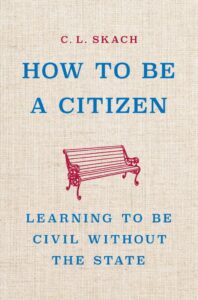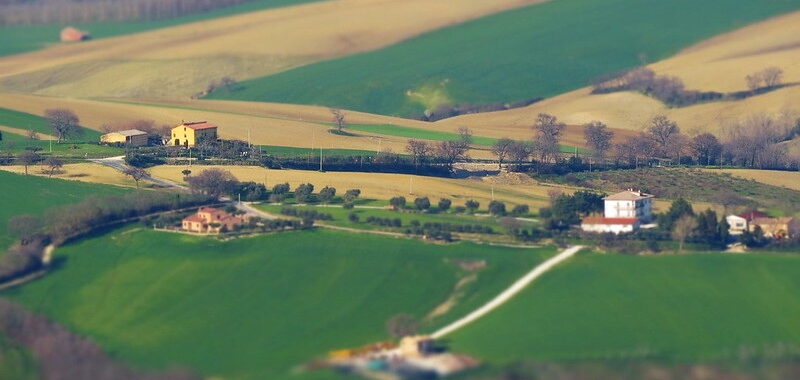A few years ago, I travelled to northern Italy to work with Alex Majoli, a Magnum war photographer. Under his direction, I wanted to carve a visual ethnography of law’s perversion and so set out with my camera early in the morning one cold Italian November to take pictures of—dairy cows. Because these particular cows were producing milk, like any other dairy herd, but milk that would be distributed via vending machines in towns and villages, with twenty-four-hour access.
Article continues below
This was not the 7-Eleven or the all-night Tesco run by large corporations: it was a system through which local farmers delivered their raw milk to sterile vats, so that individuals could come with their own bottles and fill them up, so even if you needed milk in the middle of the night, you could find it. And, most interestingly of all, it was raw, unpasteurized milk, a taboo in several parts of the world.
Fascinated by this, I set out to take the photos: of the cows, the farmers, of the machines and the people who used them. I accompanied one farmer to the vending machines as she refilled them after a long morning taking care of young calves. The directness of this form of product delivery, where the supply chain was extremely short, was tremendously interesting to me, particularly because local authorities sanctioned this kind of self-sufficiency.
When it comes to helping people take care of their health and the health of the earth…the law seems to be far behind.
Later that day, returning to our photography workshop, Alex and his staff at the Cesuralab seemed mildly amused. We had been given several bottles of raw milk by these generous farmers and enjoyed them with hot tea while looking at our day’s work. But why, they asked, was I so taken with this?
Because, I told them, in the United States, where I come from, raw milk is prohibited by law in many states—it is believed to be a health risk. It can be risky: if farmers are not careful with their production, are not clean and do not test their animals periodically, milk-borne illnesses through bacterial contamination can pose a public health problem. Many states mandated pasteurization, with various changes and exceptions since the early 1900s. So today, in some parts of the United States, this delicious raw milk that we were enjoying with our tea was more difficult to buy than a handgun.
US states listed in 2022 as having the least restrictive gun laws but where selling raw milk is prohibited by law include Alabama, West Virginia, Wyoming, Georgia, Alaska, North Dakota, and Kentucky. This is how the law in areas related to food and the environment could be perverse. And when it comes to helping people take care of their health and the health of the earth, to being self-sufficient in these critical areas, the law seems to be far behind.
The economist Scott Nearing created his own approach, his own Walden, in Maine, where he practiced and preached rural homesteading and invited others to learn it, too. In the United Kingdom, John Seymour did much of the same, teaching us to nurture the land, and nurture ourselves; to take responsibility for the environment, and for our own food; to return to values that include simplicity and a different idea of having enough.
And most recently, perhaps the most salient of all for us now, Leah Penniman has created an eighty-acre organic farm in New York—Soul Fire Farm—based on what she terms “silvopasture,” a unique form of permaculture which respects the environment. The farm produces goods that are donated to the racially complex “food deserts” around Albany and educates and encourages farmers of color to embrace food sovereignty—a key step, she and others believe, in the fight for racial justice. Indeed. Leah starts with a simple statistic: 98 per cent of the land in the United States that can grow food is “white owned.” How can this be fair, in a country where—as of 2020—white people made up only 62 per cent of the entire population?
Rewilding is a close cousin of permaculture that has, especially since the pandemic, taken hold across many countries in rural pockets—but also within cities. A former farm in Sussex that once tried antibiotics and semi-industrial farm techniques to sustain its agriculture took a decision to return the land to its “wild” state. Beautifully described by its owner, Isabella Tree, in her recent memoir, the land has been restored to a wild, unkept state, where now rare but important native species of plants and animals thrive—and are arguably in closer harmony with other native species, including us. But these projects, however important for the climate and romantically idyllic, have also met with resistance and conflict—sometimes based on critically important, real concerns.
There is resistance from farmers who believe this land was meant to be used to produce food for local communities in real time, not for our hunter-gatherer ancestors. Resistance from those who think that leaving good land alone caters to the wealthy, when underprivileged peoples need housing and cost-efficient foods, not overpriced organic rare-breed meats. Indeed, the balance between what might be good for the environment and what is needed immediately to take care of the current population and address food scarcity is a difficult one to strike.
__________________________________

Excerpted from How to Be a Citizen: Learning to Be Civil Without the State by C.L. Skach. Copyright © 2024. Available from Basic Books, an imprint of Hachette Book Group, Inc. Featured image: Gianni del Bufalo, used under Creative Commons BY 2.0

